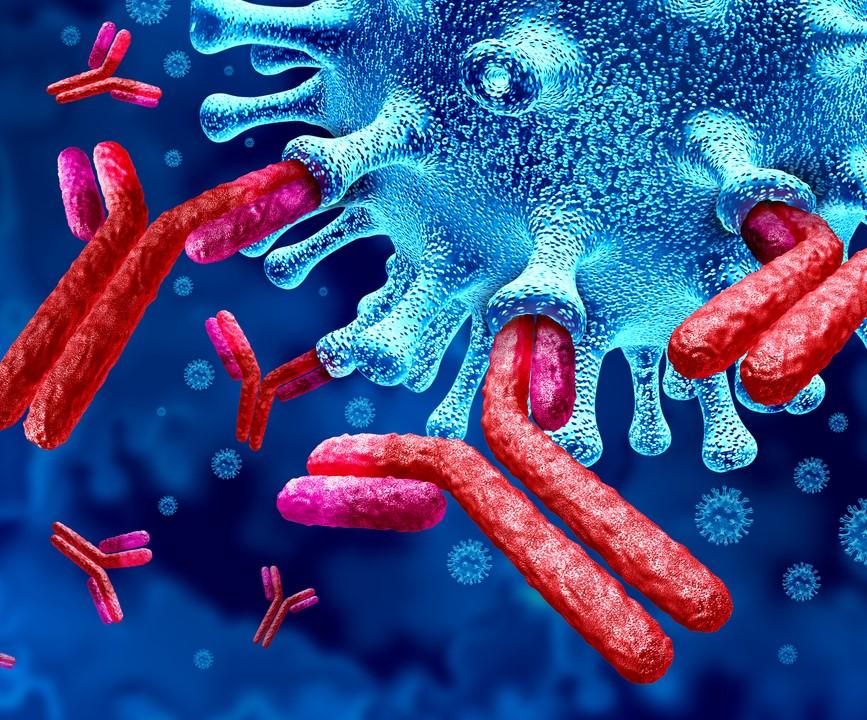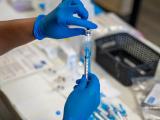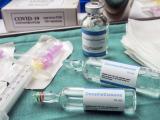Two new studies in JAMA find that COVID-19 survivors who receive two doses of the Pfizer/BioNTech or Moderna mRNA vaccines may have stronger protection against coronavirus infection, one detailing much lower breakthrough infection rates in previously infected Qataris and one describing higher spike antibody levels among recovered US healthcare workers (HCWs).
Breakthrough cases 65% to 82% lower in previously infected
Led by Cornell University researchers in Qatar, the first study involved following 1,531,736 Qataris starting 14 days after receipt of the second dose of Pfizer or Moderna COVID-19 vaccine from Dec 21, 2020, to Sep 19, 2021.
The country weathered two COVID-19 surges with the Alpha (B117) and Beta (B1351) variants from January to June 2021. Community transmission of the SARS-CoV-2 Delta (B1617.2) variant was identified at the end of March, and the strain became dominant by summer.
The Pfizer group was made up of 99,226 COVID-19 survivors and 290,432 matched SARS-CoV-2–naïve controls; median age was 37 years, and 68% were men. The Moderna group consisted of 58,096 COVID-19 survivors and 169,514 never-infected controls; median age was 36 years, and 73% were men.
Only 9% of Qatar residents are 50 or older, 89% are in the country on work visas from more than 150 counties, and most are men, the study authors said.
Among the Pfizer group, 159 (0.16%) breakthrough COVID-19 infections were reported in COVID-19 survivors, 1 of whom was severely ill with the new infection, while 2,509 (0.86%) occurred in those without previous infection. Of those, 26 had severe disease and 2 were in critical condition.
In the Moderna group, 43 breakthrough infections (0.07%) occurred in COVID-19 survivors, but with none of them severe, compared with 368 (0.22%) breakthrough infections in coronavirus-naïve participants, 1 of whom became seriously ill.
None of the Pfizer or Moderna vaccine recipients died.
Cumulative incidence of breakthrough infections among Pfizer vaccinees was estimated at 0.15% (95% confidence interval [CI], 0.12% to 0.18%) in COVID-19 survivors and 0.83% (95% CI, 0.79% to 0.87%) in those without previous infection at 120 days of follow-up (adjusted hazard ratio [aHR] for infection in coronavirus-naïve vaccinees, 0.18 [95% CI, 0.15 to 0.21]).
Among Moderna vaccinees, cumulative infection incidence was estimated at 0.11% (95% CI, 0.08% to 0.15%) in those with previous infection and 0.35% (95% CI, 0.32% to 0.40%) in those without at 120 days of follow-up (aHR, 0.35 [95% CI, 0.25 to 0.48].
In other words, those who were infected with SARS-CoV-2 before getting vaccinated had a 65% to 82% lower rate of breakthrough infection compared with those who were vaccinated but never infected.
Timing of vaccination after infection seems to matter
COVID-19 survivors infected 6 or more months before their first vaccine dose had a significantly lower risk of reinfection than those infected less than 6 months before the first dose (aHR, 0.62 [95% CI, 0.42 to 0.92]) for Pfizer and 0.40 [95% CI, 0.18 to 0.91] for Moderna.
The study authors cautioned that, because the study was observational, they couldn't directly compare infection risks between the two vaccines but that the combination of natural and vaccine-induced immunity appeared protective.
"Although the 2 vaccines were found earlier in Qatar to be highly effective against the Alpha, Beta, and Delta variants, prior infection among those vaccinated—a hybrid of natural and vaccine immunity—appeared to be associated with additional reduction in breakthrough infection," the researchers wrote.
COVID survivors have more antibodies
In the second study, Johns Hopkins University researchers compared durability of SARS-CoV-2 spike IgG antibodies in fully vaccinated HCWs with and without previous COVID-19 infection from June 2020 to Sep 3, 2021. Participants provided serum samples 14 days after receipt of the second dose of Pfizer or Moderna vaccine and then again at least 90 days later.
Among the 1,960 HCWs who gave serum samples, 73 (3.7%) had evidence of previous SARS-CoV-2 infection, 41 of whom tested positive for COVID-19 in the 90 days before vaccination and 32 of whom tested positive more than 90 days before vaccination. Of this group, 80% were women, 95% were non-Hispanic, and 80% were White; median age was 40.4 years.
Of the coronavirus-naïve participants, adjusted median antibody concentrations were 8.69 at 1 month, 7.28 at 3 months, and 4.55 at 6 months after vaccination (possible range was 1.23 to 11.00).
Relative to never-infected participants, COVID-19 survivors maintained higher adjusted antibody levels after vaccination by an absolute difference of 1.25 (relative difference, 14%) at 1 month, 1.42 (19%) at 3 months, and 2.56 (56%) at 6 months.
Participants infected with COVID-19 more than 90 days before vaccination had higher adjusted antibody concentrations after vaccination than those infected within 90 days before vaccination, at 10.52 at 1 month (absolute difference, 0.86; relative difference, 9%) and 9.31 at 3 months (absolute difference, 1.09; relative difference, 13%).
"Consistent with work comparing extended vaccine dosing intervals, the study showed that a longer interval between infection and first vaccine dose may enhance the antibody response" the authors wrote.
In a Johns Hopkins press release, senior author Aaron Milstone, MD, MHS, said the results helped elucidate the mechanisms of SARS-CoV-2 immunity.
"This finding adds to our understanding of how immunity against SARS-CoV-2 works, and builds upon an earlier study by our team that showed the mRNA vaccines yielded a robust antibody response, even if a person did not develop significant symptoms following vaccination or did not have a prior SARS-CoV-2 infection," he said.
The researchers called for further studies on whether increased antibody durability in COVID-19 survivors can be attributed to number of exposures, interval between exposures, or the interaction of natural and vaccine-induced immunity. "Studies are needed to elucidate how serological testing can inform optimal vaccine timing and need for booster doses," they said.






















